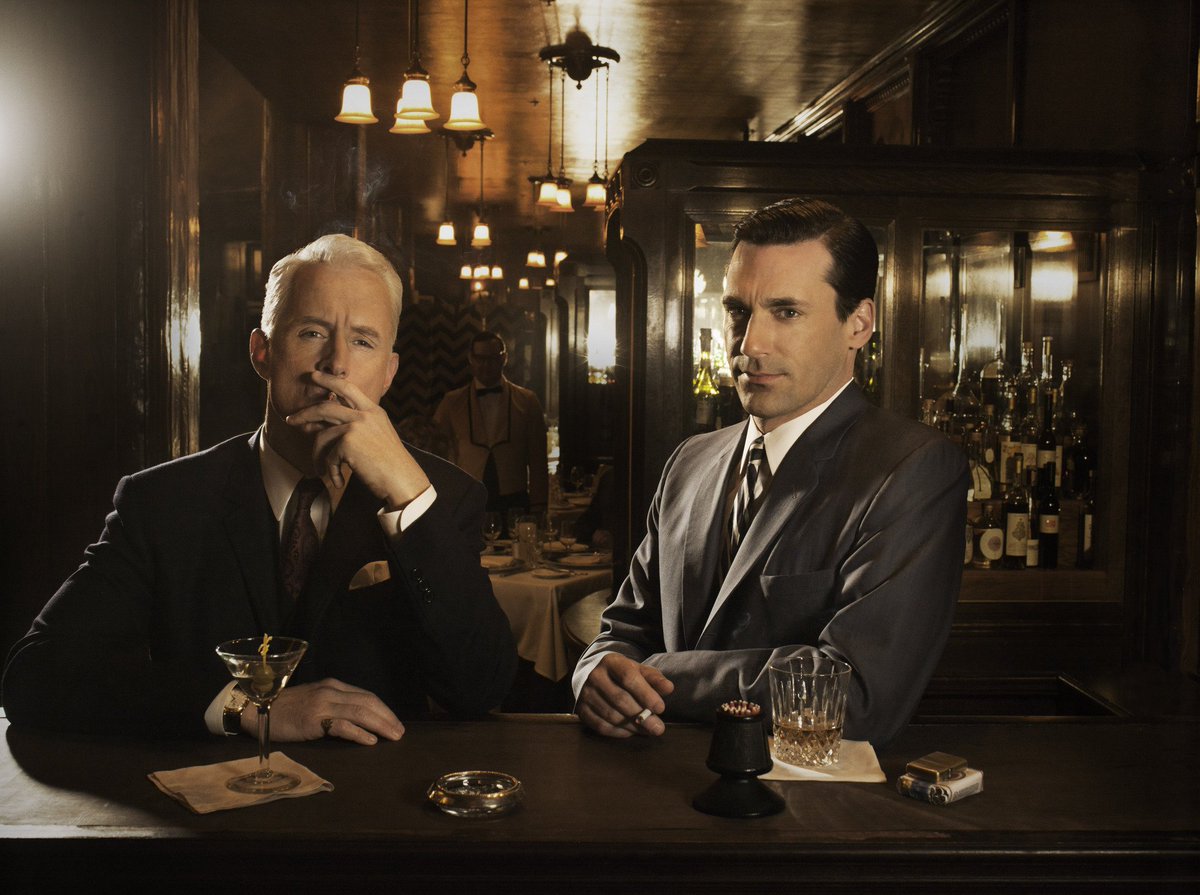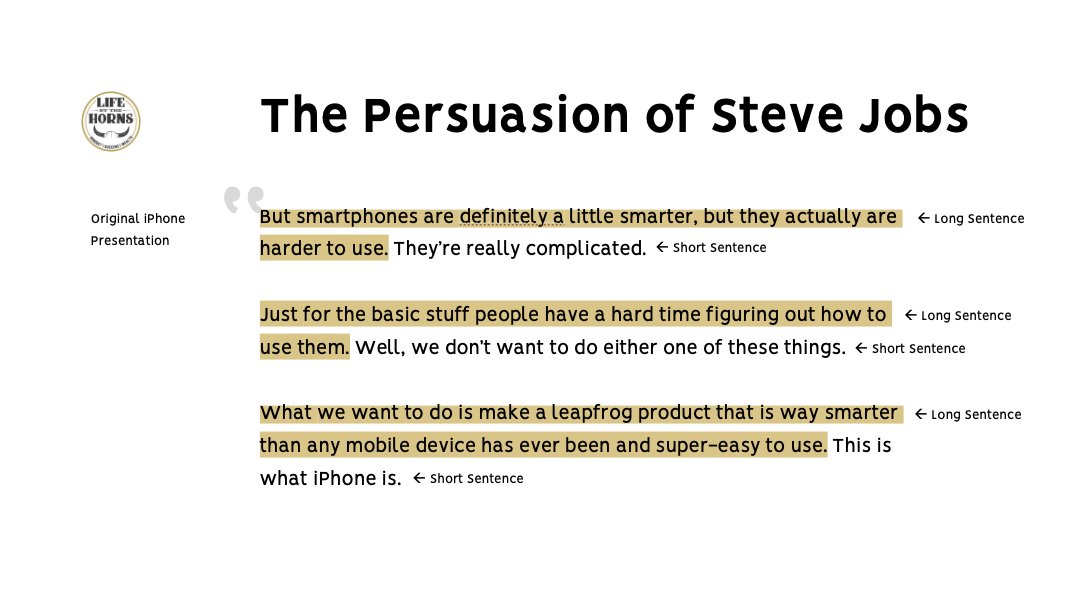
Before we dive in, let's examine a key distinction.
A Pitch is not an Offer.
Pitches get you to buy an idea.
Offers get you to buy a product.
A Pitch is not an Offer.
Pitches get you to buy an idea.
Offers get you to buy a product.
A pitch is a mental movie that *primes* people for a later offer.
If a business has a bad pitch, it won't have a good offer.
Pitches first. Offers second.
Now that we've cleared that up...
If a business has a bad pitch, it won't have a good offer.
Pitches first. Offers second.
Now that we've cleared that up...
What's the secret to a great pitch?
Contrast and dramatic tension between "today" and the "future."
Here's how you generate those things in 4 Steps...
Contrast and dramatic tension between "today" and the "future."
Here's how you generate those things in 4 Steps...
Step 1:
Introduce The Problem
1. Pick ONE super painful problem
2. Don't discuss more than one
3. Twist the knife
Understand your target's pain. Do your research
Introduce The Problem
1. Pick ONE super painful problem
2. Don't discuss more than one
3. Twist the knife
Understand your target's pain. Do your research
Step 2:
Reveal The Solution
1. Your solution is the antidote to the problem
2. Solutions are NOT features
3. They are a description of what could be done to kill the pain — or multiply money
4. They are a VISION for how your target's life improves
Reveal The Solution
1. Your solution is the antidote to the problem
2. Solutions are NOT features
3. They are a description of what could be done to kill the pain — or multiply money
4. They are a VISION for how your target's life improves
Step 3:
Go Deeper
This is where people get hung up.
They introduce the problem, then drone on and on about the solution.
Don't do it. You'll lose your audience.
Go Deeper
This is where people get hung up.
They introduce the problem, then drone on and on about the solution.
Don't do it. You'll lose your audience.
Instead, you need to *toggle* back and forth to maintain dramatic tension.
1. Begin switching between problem and solution
2. Agitate-resolve, agitate-resolve, agitate-resolve...
Put the listener on a rollercoaster.
1. Begin switching between problem and solution
2. Agitate-resolve, agitate-resolve, agitate-resolve...
Put the listener on a rollercoaster.

Step 4:
End With A Future Vision
The end of your pitch needs a crescendo.
1. Conclude your pitch with a brilliant future world where your listener's pain is gone
2. Use words like "Imagine"
3. Follow it up with a clear list of benefits
Everything builds to the end.
End With A Future Vision
The end of your pitch needs a crescendo.
1. Conclude your pitch with a brilliant future world where your listener's pain is gone
2. Use words like "Imagine"
3. Follow it up with a clear list of benefits
Everything builds to the end.
Let's look at an example...
This system works for any idea or business.
But here's how I would pitch the payments company Square to a merchant.
This system works for any idea or business.
But here's how I would pitch the payments company Square to a merchant.

"You know you're losing out on business because you don't accept credit cards.
But knowing you're losing money doesn't make a difference because it's so painful and costly to take multiple forms of payment...
But knowing you're losing money doesn't make a difference because it's so painful and costly to take multiple forms of payment...
...You've tried a few point-of-sale solutions but they seem to cause more headaches than they resolve.
This exact problem is why we developed Square. Imagine if you could accept payments on your phone from every customer — all with a tiny card reader that fits in your pocket."
This exact problem is why we developed Square. Imagine if you could accept payments on your phone from every customer — all with a tiny card reader that fits in your pocket."
Why does this formula work so well?
Because it's rooted in one of the most potent weapons of persuasion — contrast.
And because it's rooted in one of the most potent weapons of storytelling — dramatic tension.
Because it's rooted in one of the most potent weapons of persuasion — contrast.
And because it's rooted in one of the most potent weapons of storytelling — dramatic tension.
https://twitter.com/LifeHornsWay/status/1295776396778889217
Conclusion:
1⃣A strong pitch primes people for a later offer
2⃣The best pitches use contrast and dramatic tension
3⃣Describe pain, give the antidote, then start the rollercoaster
4⃣Conclude with a vision of a brilliant future
1⃣A strong pitch primes people for a later offer
2⃣The best pitches use contrast and dramatic tension
3⃣Describe pain, give the antidote, then start the rollercoaster
4⃣Conclude with a vision of a brilliant future
That's all friends!
If you found this valuable, please RT the top tweet:
If you found this valuable, please RT the top tweet:
https://twitter.com/LifeHornsWay/status/1315776861415174144
• • •
Missing some Tweet in this thread? You can try to
force a refresh
















